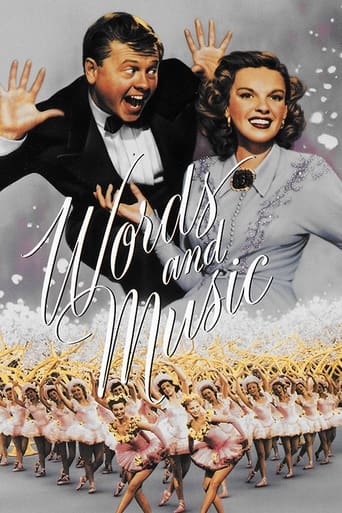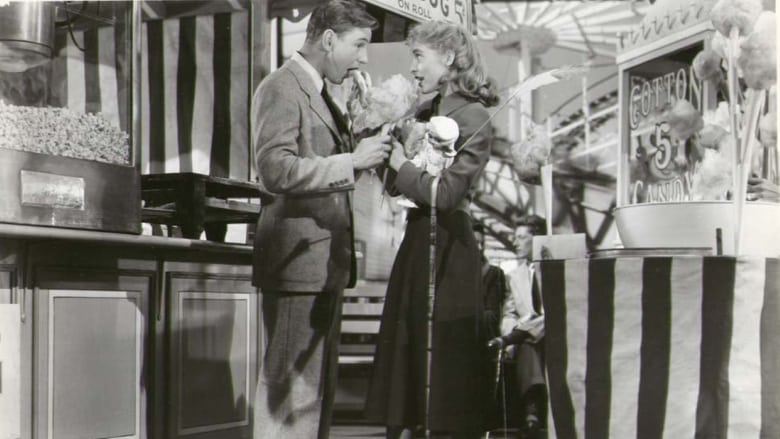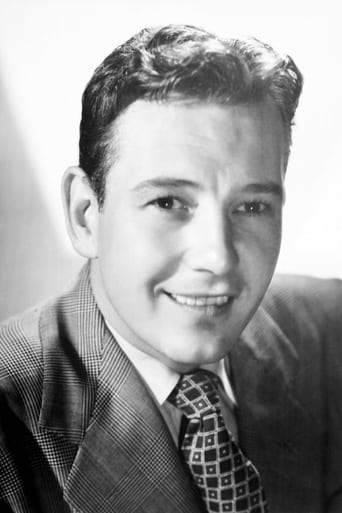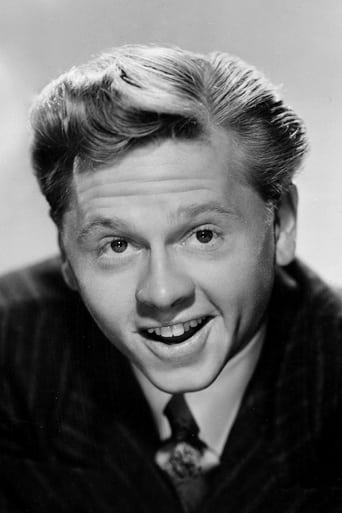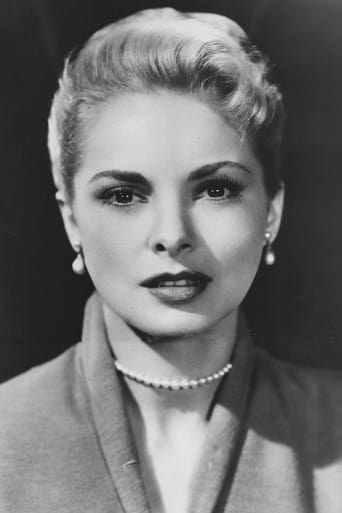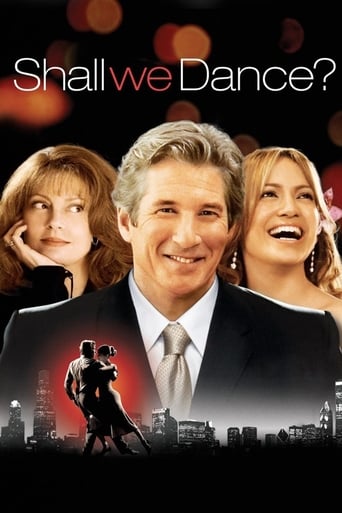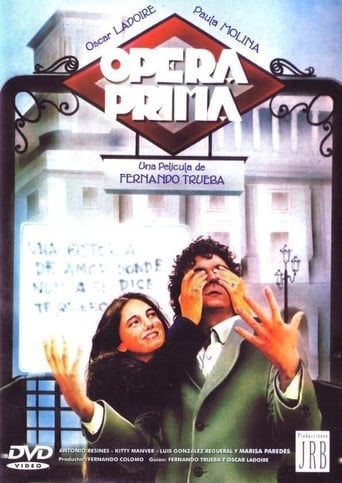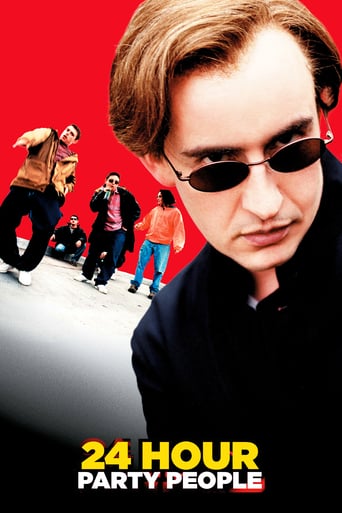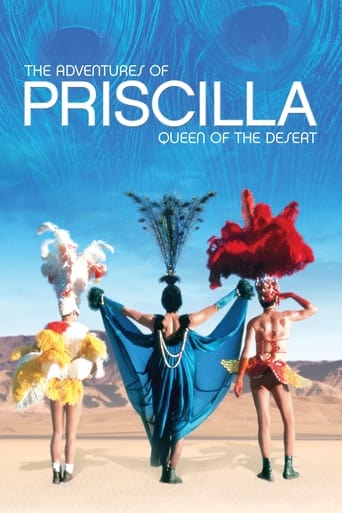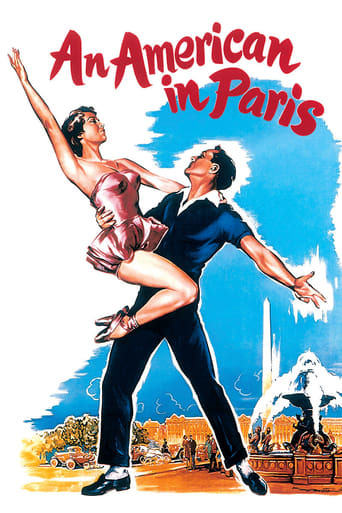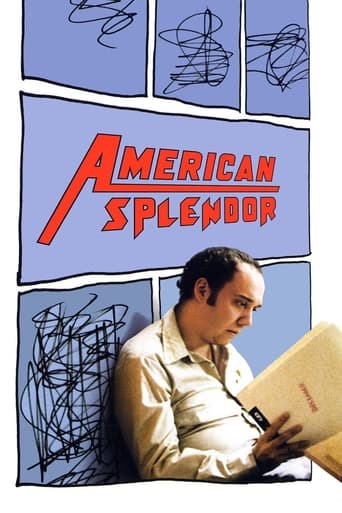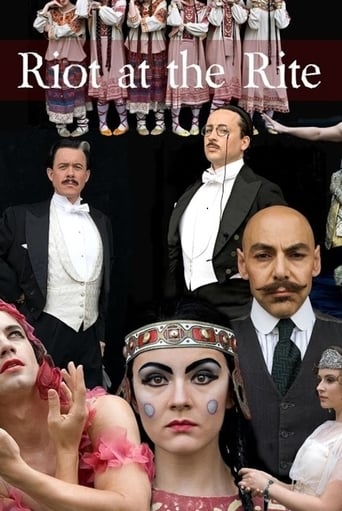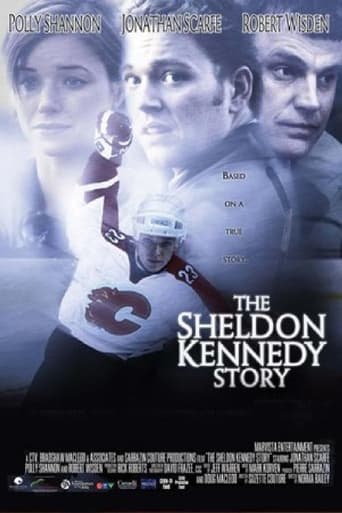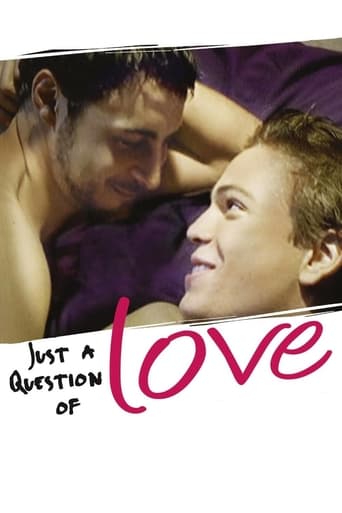Words and Music (1948)
Encomium to Larry Hart (1895-1943), seen through the fictive eyes of his song-writing partner, Richard Rodgers (1902-1979): from their first meeting, through lean years and their breakthrough, to their successes on Broadway, London, and Hollywood. We see the fruits of Hart and Rodgers' collaboration - elaborately staged numbers from their plays, characters' visits to night clubs, and impromptu performances at parties. We also see Larry's scattered approach to life, his failed love with Peggy McNeil, his unhappiness, and Richard's successful wooing of Dorothy Feiner.
Watch Trailer
Cast


Similar titles
Reviews
Beautiful, moving film.
When a movie has you begging for it to end not even half way through it's pure crap. We've all seen this movie and this characters millions of times, nothing new in it. Don't waste your time.
Ok... Let's be honest. It cannot be the best movie but is quite enjoyable. The movie has the potential to develop a great plot for future movies
All of these films share one commonality, that being a kind of emotional center that humanizes a cast of monsters.
All songs by Richard Rodgers (music) and Lorenz Hart (lyrics). This of course is the reason for seeing the movie. Nobody should pay the least attention to the rubbishy story which though allegedly based on the lives of Rodgers and Hart, is the most unashamed piece of the blandest Hollywood hokum. From memory, only three points in the script are true: (1) Richard Rodgers and Lorenz Hart did collaborate on a number of Broadway shows including "On Your Toes", and the books for some of these shows were written by Herb Fields; (2) Rodgers did marry a girl named Dorothy Feiner; (3) Hart was sometimes (not "often" as the script claims) late for appointments. Just about everything else in this musical biography is false. Not helping matters are Tom Drake's impossibly lackluster performance as Rodgers versus Mickey Rooney's outrageously hammy impersonation of Hart. Taurog's dreary direction further heightens ennui. The musical numbers, fortunately, are something else. Colorfully photographed by Harry Stradling, vigorously staged and choreographed by Robert Alton, they nearly all have a life and vitality which brilliantly complements Hart's astringent lyrics and Rodgers' catchy melodies. Excellent orchestrations by Conrad Salinger give the music plenty of color without drowning the melodic line (a common fault in Hollywood musicals of the late 40s and early 50s). The M-G-M Studio Orchestra under the baton of Lennie Hayton is at its best. Most impressive of all, the sound — particularly when measured against the very modest standards of M-G-M — has a remarkable range and fidelity. Admittedly the sound levels between the songs and the story don't match, but by M-G-M's normal tin-ears syndrome, this is a minor defect.
In 1948, you couldn't make a biography of the true story of Lorenz Hart. That couldn't be done because of a little line in the Hays code that stated basically that any reference to homosexuality could not be presented on screen. So the very heterosexual Mickey Rooney was cast as Hart, and is still presented as troubled (insecure because of his height and lack of success with women, he turns to alcohol) while Tom Drake as Richard Rodgers is presented as very happily married and successful. That's basically all that happens, and in one of the lamest excuses for a guest appearance in a musical, Judy Garland (at 26 in 1948) meets Hart in a year when she was approximately 18 or 19, just so Rooney and Garland can share a duet.Certainly that duet ("I Wish I Were in Love Again") is magic, as is Judy's other song ("Johnny One Note"), but unlike "Till the Clouds Roll By" (where she portrayed Marilyn Miller), she isn't out of place dramatically and historically in the film. Yes, just two years before, we were all supposed to believe that Cary Grant was Cole Porter in "Night and Day", another mediocre musical biography saved only for its cast and its songs. So here, it's just a parade of Rodgers and Hart's best songs sung by MGM's top stars. You do get a full chance to see Gene Kelly and Vera-Ellen perform the "Slaughter on Tenth Avenue" ballet from "On Your Toes", June Allyson singin' up slang with "Thou Swell" in "A Connecticut Yankee", and Lena Horne in a nightclub singing "The Lady is a Tramp". Rooney figures out a clever way to introduce us to "Manhattan" (his lyrics basically scribbled all over a menu), while Perry Como ("Mountain Greenery") and Ann Sothern ("Where's That Rainbow"?) give us some obscure songs from forgotten Rodgers and Hart shows.Rooney does get a brief love interest with Betty Garrett's character (supposedly based upon a man in real life), the ending of which sets him up with despair. He puts too much emphasis on the energy in his performance so when his character falls all the way down to ultimate despair, it doesn't come off as true. Some of Rodgers and Hart's best songs are missing (especially some classics from their two best known shoes, "The Boys From Syracuse" and "Pal Joey") and the casting of the dramatic parts seems entirely uninspired. You'll find a lot to like musically in this film, but as a whole, the film has aged as one of MGM's great disappointments, an entirely missed opportunity.
This and WB's "Night And Day" are classic examples of how the major studios could distort 1920's and 1930's musical history to what they think was appropriate fact for 1940's audiences.There's hardly any accurate about this account of Rodgers and Hart's career.Everyone's dressed in 1947 clothing, even though much of it takes place in the 1920's. MGM was incapable of showing the way things really were (only Minneli's "Meet Me In St Louis" was close to being visually correct.) To top it off, let me be one of the apparent few to consider Mickey Rooney's way-over-the-top typical performance and extremely modest voice. I just don't understand how he became such a huge star.
It's not that I don't like music or musicals. Instead, I adore Gene Kelly, Fred Astaire, Judy Garland and more great artists like them. I also like biopics and the stars they're about, like Cole Porter in 'Delovely' and Glenn Miller in 'The Glenn Miller Story'. But I must confess I hated this version of the lives of Rogers and Hart.Why? Because it's a typical Hollywood-movie. The characters aren't real human beings, even though they'd have to. When a person is sad in the life story of the two music- and lyric writers, or when damnation strikes, it seems like the director wants that his audience feels sad too. But please, we can only feel sad when we feel sad. When do we feel sad? When we identify ourselves with the characters. But here that is impossible, because this isn't a realistic approach: each character is just a figure with one dimension. Mulder and Scully would have more problems to get real life in this production than to prove Alien lifeforms exist.Sweet Hollywood, I love you, but please, if you make a movie about my life, mix the good with the bad and a bit of movie magic, because here it was only bad or good. No, I will never see this monstrous picture again.

